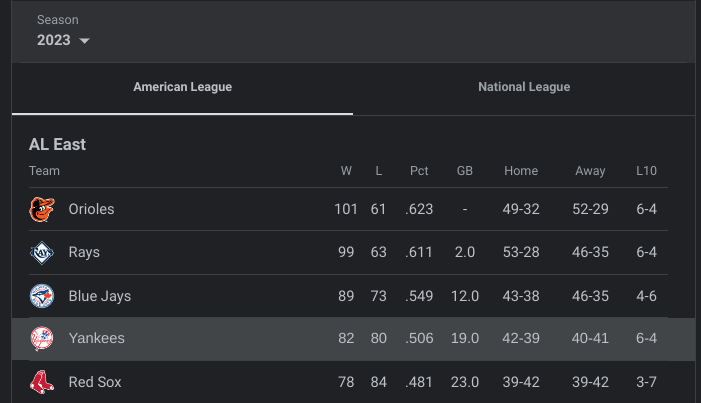What’s In Our Food?

Photo Source: Source: https://biologicalanthropologytoday.files.wordpress.com/2013/07/gmo-seeds.jpg
May 23, 2023
Many people don’t really think about what’s in the food that they eat, but what if you knew that conventional food products have pesticides in them? In other words, poison. Pesticides in farming were introduced in the 1930s, and at that time people didn’t realize the risk of it. Fast-forward to now, most conventional farms use pesticides that are dangerous to humans and the environment. But a fast-rising market of organic food can minimize harm to everyone and everything. Organic food should be the standard for food because non-organic food can cause diseases, birth defects, and it can harm the environment.
One reason why organic food should be the standard is that non-organic food can cause health risks and brain defects in babies. The pesticides used in non-organic foods can cause various diseases and health conditions. These pesticides and chemicals like “ fertilizers and herbicides, fungicides, and insecticides are majorly used in conventional agriculture which are dangerous for health, especially for children and pregnant women, as they can cause serious health issues like cancers, brain tumors, leukemia, immune disorders, infertility, cardiac disease, hypertension, Alzheimer’s and numerous other diseases. In organic farming, naturally derived pesticides are used, in place of synthetic pesticides that are common in conventional farming. Natural pesticides are non-toxic, thus eliminating the risk of major health issues.” This shows how organic food is superior to non-organic food because of the ingredients used to farm non-organic food. Non-organic food uses a host of toxic chemicals and pesticides to make it, whereas organic food uses naturally occurring pesticides and fertilizers. Many different diseases and health risks can be contracted by consuming the pesticides that non-organic food contains. One health risk caused by non-organic food is if a pregnant woman is exposed to the chemicals in non-organic food, the baby’s brain is affected. Furthermore, US studies have shown that women’s exposure to pesticides during pregnancy, measured through urine samples, were associated with negative impacts on their children’s IQ and neurobehavioral development. A study looking at structural brain growth found the grey matter was thinner in children whose mothers had high exposure to organophosphates, which are used widely in pesticides. Pesticides are a major health threat to our society that starts at an early age, in the womb. We could have a whole generation of babies who have brain issues if non-organic food continues to be sold. One solution is to ban organophosphates in pesticides, which are the root cause of these problems. Pesticides in fertilizers are a major health risk because of the problems they cause in people and even unborn babies.
Another reason why organic food should be the new standard for food is because the food has more nutrients in it, and it tastes better. The way organic food is grown doesn’t use chemicals and pesticides, producing food that is more nutritious and sustainable. Organic foods are grown under a system of agriculture that does not use chemical fertilizers or pesticides. Modern scientific understanding and technological advances are applied to this farming system to offer a more sustainable way of farming & sustainable food production. This method of farming works at the grass root level, preserving the reproductive and regenerative good plant nutrition, the capacity of the soil and sound soil management, producing nutritious food rich in vitality which has resistance to disease. This proves that organic food is better for people and the environment. By making organic food the standard, we can have better tasting and sustainable food. We can also ensure that our livestock are eating organic food so the meat we eat is healthier. Another key point is that organic food has resistance to diseases, which can solve major food scarcities caused by crops contracting diseases. Organic food has more benefits than just sustainability, it can also improve the taste of the food that’s grown. In the article, “Sustainable Farming Is Our Future” the author talks about an experience from an organic farmer in which the food tasted better. “In Pakistan, in the semi-arid area of Dera Ghazi Khan district where Khan’s maternal family farmed, there was always a shortage of water, which often led to less use of conventional fertilizers and pest controls because water is essential to the application of these products. Surprisingly, the wheat, sorghum, millet and chickpea they grew seemed to have a better flavour because of this. His mother, in particular, noticed this difference” (Minter). We can have even tastier food if organic food is the standard. Droughts can also be limited since it takes a lot of water to use pesticides and fertilizers. Organic foods can not only make the food taste better, it can minimize droughts as well. By growing food the organic way, there are more benefits than just health, the food that is grown is also delicious.
A lot of organic food claims to be organic and doesn’t meet the standard which makes a lot of people skeptical about organic food. A new law was passed by the federal government which will help streamline the organic industry to what is actually organic and beneficial. A new law was passed by the federal government to ensure that organic foods are as labeled in order to boost oversight and enforcement of products labeled organic, both domestically and imported. The new provisions will also affect USDA-accredited agents and inspectors in an effort to give consumers more confidence that the products they’re buying are actually organic. This law is important because this eliminates the skepticism about whether the food is actually organic, and actually good for you. This will also ensure that imported products labeled organic live up to our standards as well. The USDA organic label should be a label with high standards behind it, and this act enforces that. A lot of people believe that all organic food has no difference and it’s just more expensive, but this bill that was passed proves that there is a difference, and that organic food is worth protecting.
Organic food should become the criteria for foods because non-organic food can potentially pose health risks, cause birth defects and harm the environment. Some pesticides in non-organic food have been linked to diseases such as immune disorders, cardiac disease, infertility and so much more. A chemical found in certain pesticides called organophosphates can potentially thin a child’s grey matter in their brain while they’re in the womb. Organic food on the other hand, is good for the environment and it can also taste better than conventional food. Next time you’re at the grocery store, think about what’s in your food and how one small choice you make can greatly affect you and the environment.












































